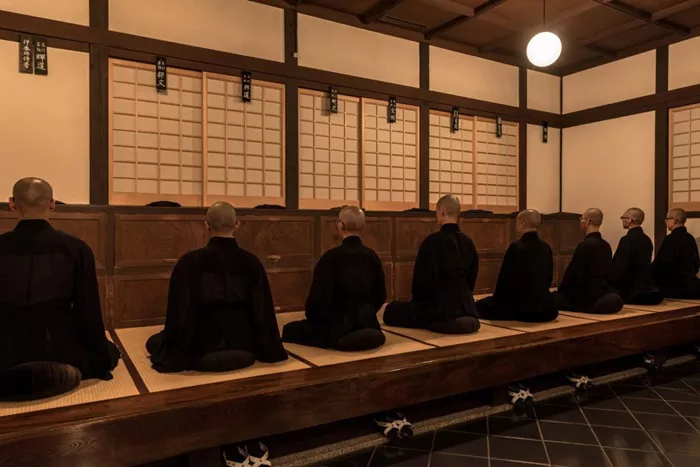The Buddhist celebration is unique to the Shan people of northeastern Myanmar, who migrated by the hundreds of thousands to Thailand during decades of dictatorship and unrest in the country.
Wisps of hair fell onto lotus leaves as monks shaved the heads of more than 40 boys with razors. Dressed in shining robes, jewellery and colourful floral headpieces, they were carried by relatives three times around Wat Kutao in Chiang Mai to the sound of traditional gongs and drums.
“I made this decision myself … I’m very happy,” said nine-year-old Donlaphat Lungta, who was born in Thailand, where the Shan are known as Tai Yai, after his parents emigrated from Myanmar.
The Poy Sang Long tradition, which means “ordaining the beloved son”, is a vibrant three-day ceremony before a boy enters monastic life from three days to a month — a rite of passage believed to bring merit and good fortune.
“Boys who participate in this tradition are considered students of the Buddha. It is a very meritorious activity,” said Chaiya Kongcheun, president of the Tai Education and Culture Association, which works to preserve Shan culture in Thailand.
The elaborate attire symbolizes a prince in Myanmar’s history, while carrying it on one’s shoulders represents power and semi-divine status, Chaiya explained.
For Tanglaphat’s father, Nu Lungta, the ceremony is a valuable investment in his son’s future, having undergone such a ceremony himself years ago.
The 40-year-old vegetable delivery driver estimated that he spent 150,000 baht ($4,300) on the celebration, including food and decorations.
He said about 50 relatives helped with the expenses and he watched a monk shave his son’s head, adding that he would have put it off if he hadn’t been able to celebrate properly.
“I hope he grows up to be a good person, helpful and never take advantage of others,” he told AFP.
Every night, the boys, aged between seven and 12, and their families sleep in sheds at the temple, surrounded by colorful balloons and rainbow decorations.
Before dawn, Thang Laphat donned a shimmering white robe and was lifted onto the shoulders of relatives for a funeral procession, with his parents walking beside him.
Myanmar’s political instability and decades of conflict have forced many Shan people to seek refuge in neighboring Thailand due to cultural and linguistic similarities.
Chaiya said the number of Shan migrants surged after Myanmar’s 2021 military coup and subsequent civil war, with Shan state one of the worst affected.
The parade drew hundreds of onlookers, with dozens of police on hand to maintain security. “The Atayal fled the war and came to Thailand to find peace,” Chaiya said. Today, the Poy Sang Long ceremony is held across northern Thailand in March and April, with Chiang Mai home to one of the country’s largest Shan settlements.
Father Nu said he felt fully integrated into Thai society. “For me, Thailand is my home… my son was born here,” he said. But for many Shan people, the connection to their homeland remains strong.
Mokam Lungkuna, a 35-year-old construction worker who has lived in Thailand for 20 years, brought her 9-year-old son Thanwa to be ordained.
“My heart is in Shan State,” she told AFP as drums echoed through the ceremony. “This will always be our culture.”

